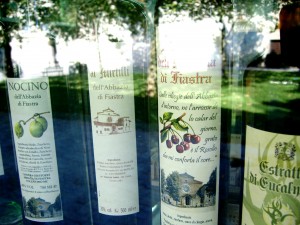 There’s an article in the latest Science entitled Celebrating Spuds. Unfortunately it is behind a paywall, so you may not be able to join in the celebrations. But even if you were, I’d suggest settling down with John Reader’s new book Propitious Esculent instead. I fancy myself moderately well informed about the potato but Reader served me with plenty of interesting new tidbits in addition to the usual fare. He has a terrific knack for putting things in context and for managing to take you off on detours so interesting that you hardly notice that you’ve deviated from the straightforward path. The silver mines of South America, for example, may well have been fuelled by potatoes, but the entire social set-up goes well beyond the potato as fuel and illuminates much of the Spanish conquest. Likewise, his very personal reminiscences of life in Ireland in the 1960s help to bring the great famine into perspective. His discussions of various food price crises in history is especially interesting today. When English farmers decided to abandon crops and instead grow sheep for wool, riding a boom in prices, there were riots in the streets over high prices for bread. Sound familiar?
There’s an article in the latest Science entitled Celebrating Spuds. Unfortunately it is behind a paywall, so you may not be able to join in the celebrations. But even if you were, I’d suggest settling down with John Reader’s new book Propitious Esculent instead. I fancy myself moderately well informed about the potato but Reader served me with plenty of interesting new tidbits in addition to the usual fare. He has a terrific knack for putting things in context and for managing to take you off on detours so interesting that you hardly notice that you’ve deviated from the straightforward path. The silver mines of South America, for example, may well have been fuelled by potatoes, but the entire social set-up goes well beyond the potato as fuel and illuminates much of the Spanish conquest. Likewise, his very personal reminiscences of life in Ireland in the 1960s help to bring the great famine into perspective. His discussions of various food price crises in history is especially interesting today. When English farmers decided to abandon crops and instead grow sheep for wool, riding a boom in prices, there were riots in the streets over high prices for bread. Sound familiar?
The one thing I didn’t find, and that may be because my memory is playing tricks on me, was a discussion of a mad scheme by a Geoffrey Pyke, a wonderful Englishman who is sadly all but forgotten. After World War II Pyke wrote a series of articles outlining the benefits of using teams of cyclists to haul railway wagons around Europe. He calculated that the energy in food, and the efficiency of human muscle, made this a far better bet than expensive fossil fuels. In my memory, the calculations were all based on feeding the teams of cyclists potatoes. But Wikipedia says it was sugar, and Wikipedia is never wrong. The articles were in the Manchester Guardian of 20, 21 and 24 August 1945. Alas, I can’t find those pages online, so I can’t check. But why would I have remembered potatoes if it really was sugar Pyke was talking about?


